Courses
Finance
Status | Title | Credit Hours |
|---|---|---|
| Budgeting | (16 hours) | |
| Business Insurance Fundamentals | (3 hours) | |
| Business Ratios | (17 hours) | |
| Business Valuation | (3 hours) | |
| Capital Budgeting | (5 hours) | |
| Corporate Cash Management | (15 hours) | |
| Corporate Finance | (15 hours) | |
Updated | Crowdfunding Essentials | (2 hours) |
| Financial Analysis | (20 hours) | |
| Financial Analysis, Modeling and Forecasting | (14 hours) | |
| Financial Forecasting and Modeling | (5 hours) | |
| Interpretation of Financial Statements | (11 hours) | |
| Investing in Income Properties | (12 hours) | |
| Revenue Management | (3 hours) | |
| Treasurer's Guidebook | (16 hours) | |
| Working Capital Mini-Course | (5 hours) |
Budgeting
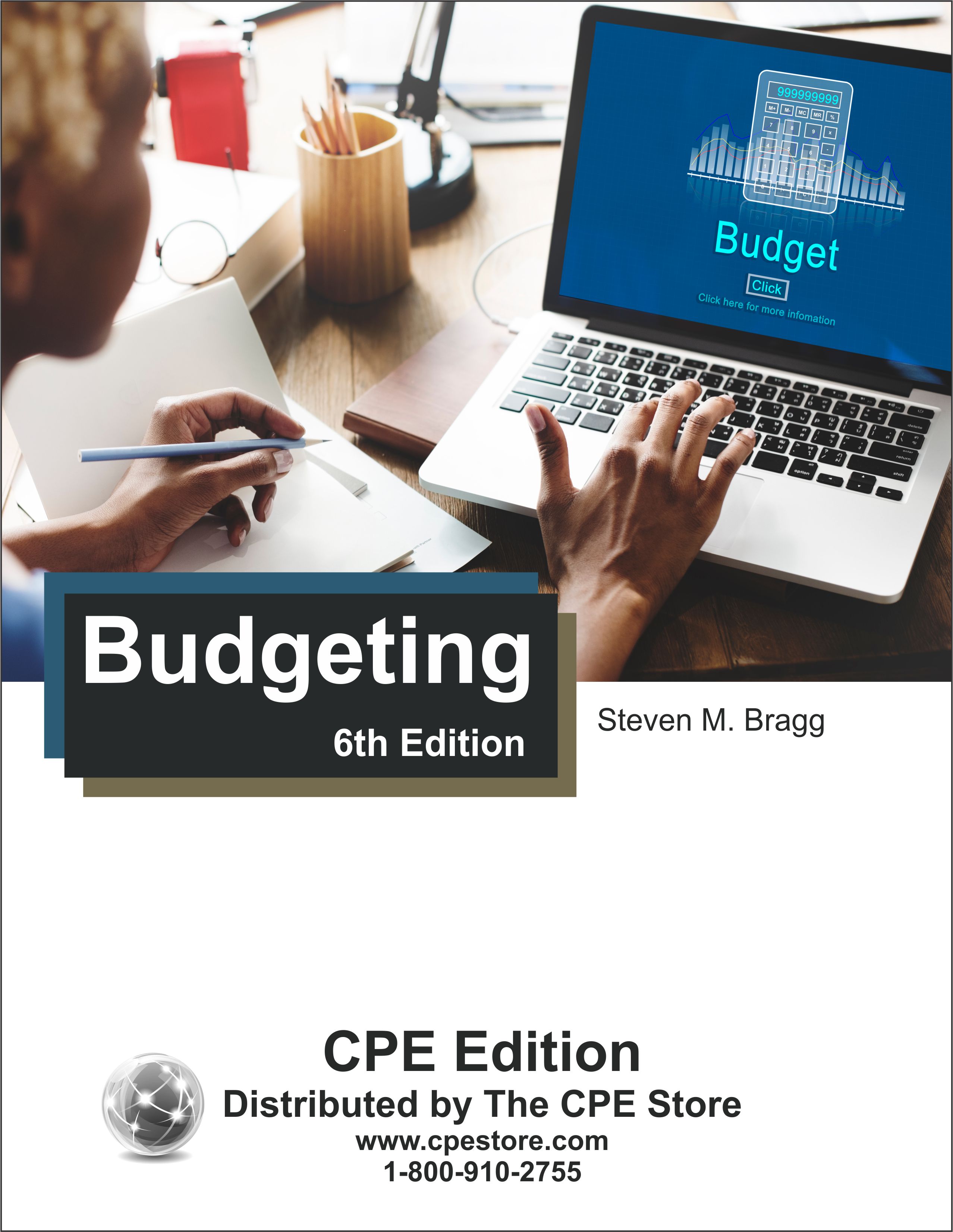
Course number: B479106
Addresses all aspects of the budgeting conundrum: how to create a budget, whether there are variations on the concept that may work better, and how to operate without any budget at all. The course covers all parts of a traditional corporate budget, including such areas as the production budget, inventory budget, and master budget. Flexible budgeting and zero-base budgeting are also covered. The course also discusses a variety of budget-related systems, such as procedures, reporting, and controls. An appendix contains a sample budget, showing subsidiary budget schedules rolling up into a master budget. Course level: Basic. Prerequisites: None. Course includes integrated text and study guide, final exam and grading service.NASBA field of study: Finance Course credit: 16 hours
Printed Version$109
PDF$109
Colleague Test(s)$50
Contents
Business Insurance Fundamentals
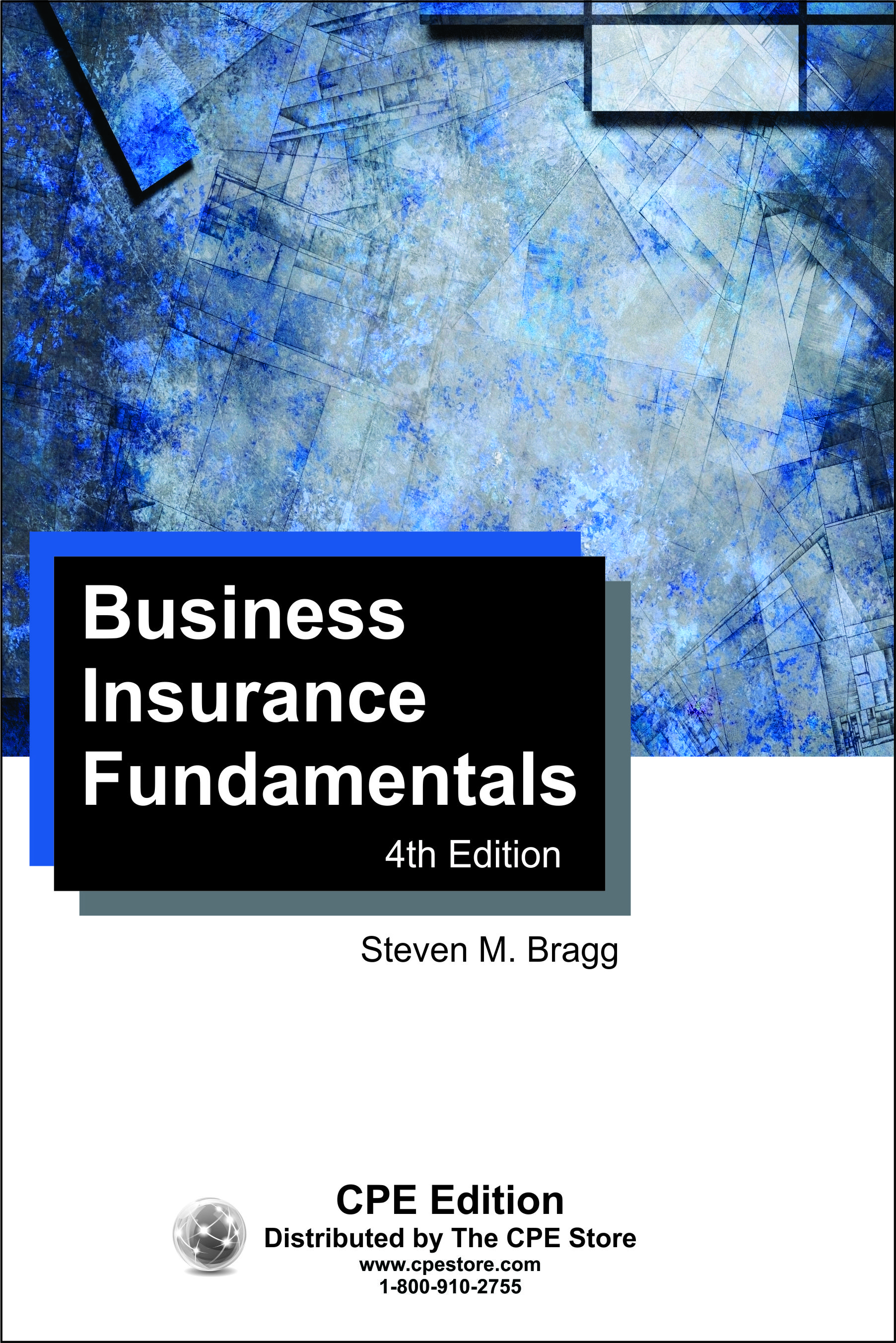
Course number: B459104
Business Insurance Fundamentals provides an overview of the insurance industry, including the operations and distribution systems of insurers. The course also notes the more common insurance policy terms and conditions, the types of insurance most applicable to businesses, and how to manage and account for insurance. There is a particular emphasis on managing the cost of insurance. Course level: Basic. Prerequisites: None. Course includes integrated text and study guide, final exam and grading service.NASBA field of study: Finance Course credit: 3 hours
Printed Version$29
PDF$29
Colleague Test(s)$15
Contents
Business Ratios
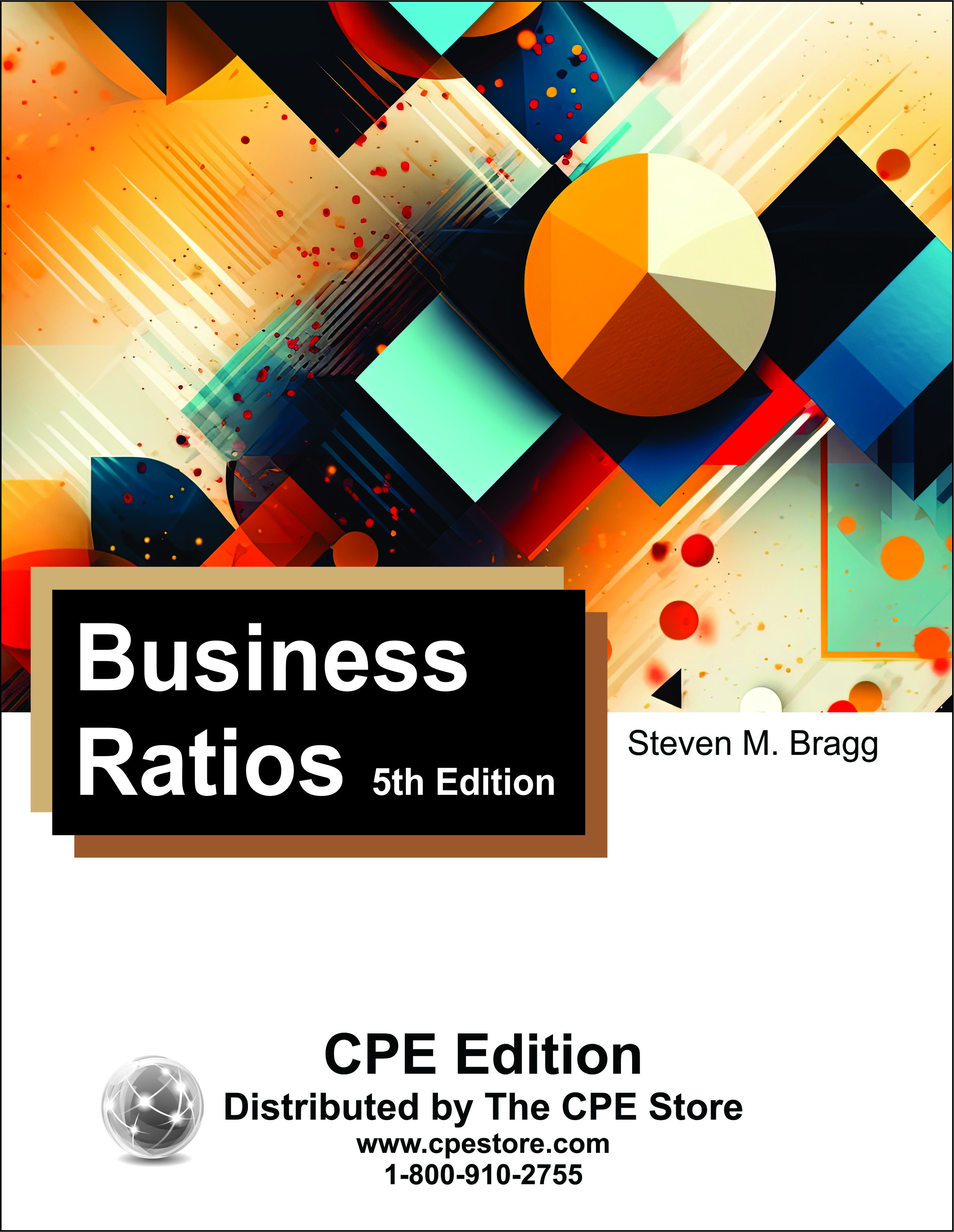
Course number: B438805
This course describes more than 200 ratios and other measurements that can be used to analyze the results, liquidity, and cash flows of a business. The measurement areas covered include performance, liquidity, cash flow, share performance, growth, constraint, throughput, facilities, fixed assets, inventory, payroll, pricing, product design, purchasing, marketing, and return on investment. Examples of the functional areas also covered by the course include cash management, credit and collections, customer service, human resources, production, and sales. Course level: Basic. Prerequisites: None. Course includes integrated text and study guide, final exam and grading service.NASBA field of study: Finance Course credit: 17 hours
Printed Version$109
PDF$109
Colleague Test(s)$50
Contents
Business Valuation
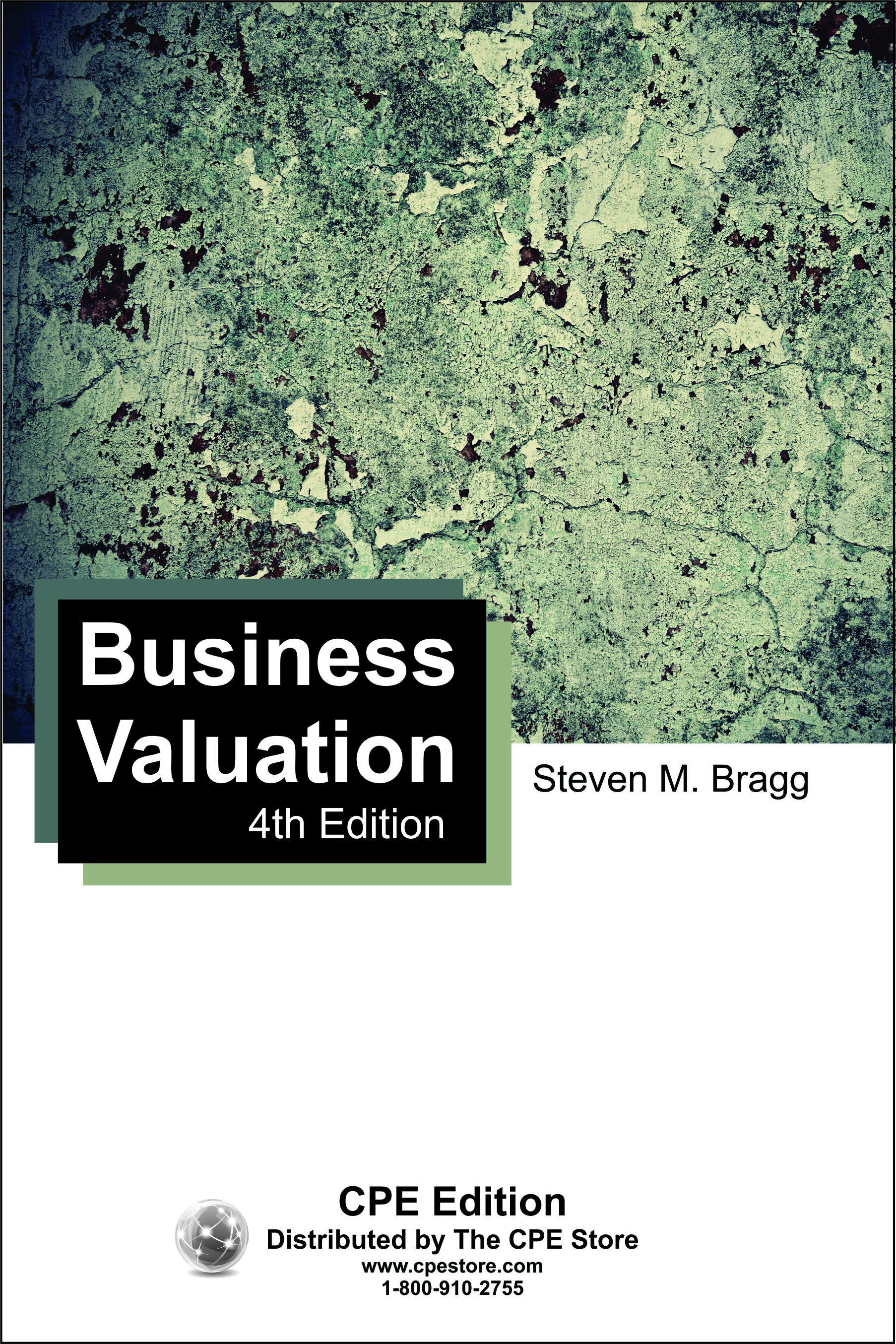
Course number: B462504
Business Valuation explores the full range of valuation methods that can be used to derive a business valuation. The course notes the circumstances under which each method should be used, and also describes how to sort through situations in which a range of valuations are indicated. The course goes on to describe valuation methods for intangible assets, a number of valuation adjustment factors, valuation mistakes, and similar topics. Course level: Basic. Prerequisites: None. Course includes integrated text and study guide, final exam, and grading service.NASBA field of study: Finance Course credit: 3 hours
Printed Version$29
PDF$29
Colleague Test(s)$15
Contents
Capital Budgeting
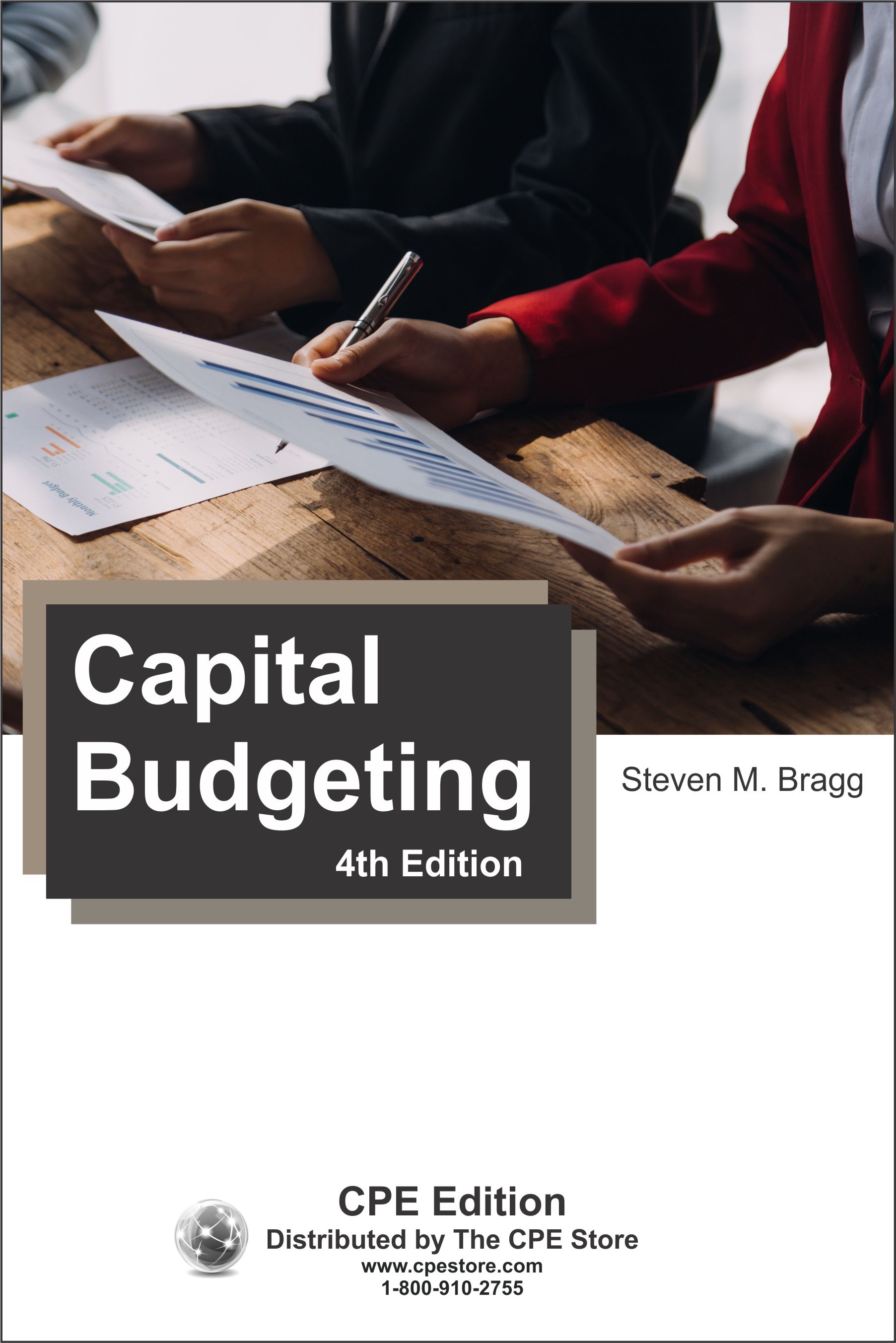
Course number: B456104
Capital Budgeting describes how requests for capital investments are documented and examined. It also covers the primary methods for determining whether a proposed investment is acceptable, as well as a number of strategic considerations. Lease or buy financing options are also discussed, along with a system of capital budgeting controls. Course level: Basic. Prerequisites: None. Course includes integrated text and study guide, final exam, and grading service.NASBA field of study: Finance Course credit: 5 hours
Printed Version$39
PDF$39
Colleague Test(s)$15
Contents
Corporate Cash Management

Course number: B475805
The proper management of cash is an essential part of business operations. Corporate Cash Management provides an essential framework for the development and operation of a cash management system. It does so by showing how to forecast cash flows, which can then be used as the basis for a campaign to enhance the inflow of cash to the organization. The course also notes the systems used to collect, concentrate, invest, and disburse cash, as well as the supporting controls and measurements needed to monitor these systems. It also covers the related topics of fundraising and risk management. In short, Corporate Cash Management is a useful tool for developing a comprehensive system of cash management. Course level: Basic. Prerequisites: None. Course includes integrated text and study guide, final exam and grading service.NASBA field of study: Finance Course credit: 15 hours
Printed Version$109
PDF$109
Colleague Test(s)$45
Contents
Corporate Finance
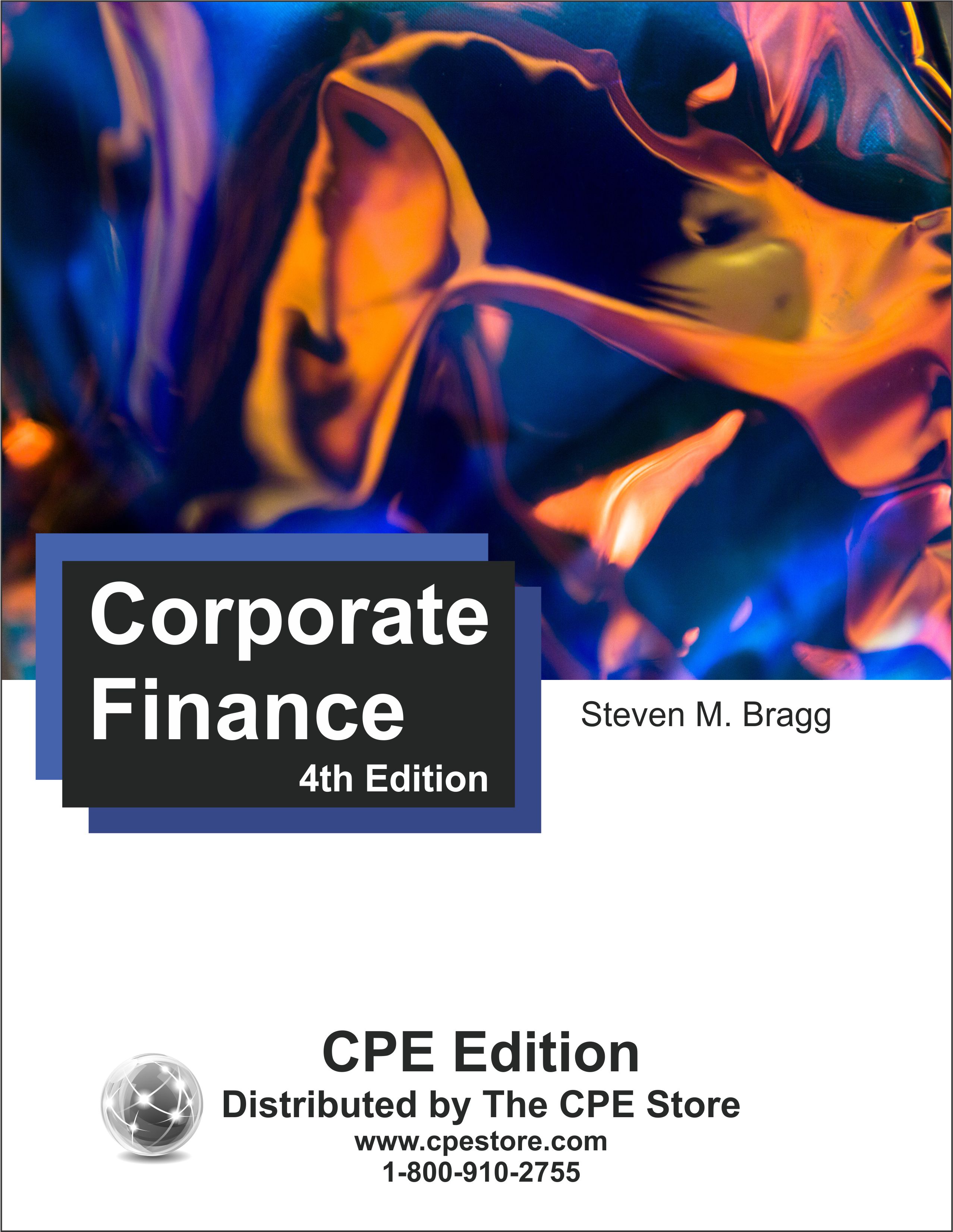
Course number: B452604
Corporate Finance follows the flow of funds through a business, including fund raising, internal cash management, and the deployment of funds to dividends, capital expenditures, investments, and acquisitions. This course is intended to give the professional manager direction regarding how to develop an appropriate capital structure and determine the best types of debt and equity funding. Additional tools are provided for calculating the cost of capital and constructing cash flows to analyze potential cash uses. Full coverage of risk management for foreign exchange and interest rates is also included. Course level: Basic. Prerequisites: None. Course includes integrated text and study guide, final exam and grading service.NASBA field of study: Finance Course credit: 15 hours
Printed Version$109
PDF$109
Colleague Test(s)$45
Contents
Crowdfunding Essentials

Course number: B488603
This course discusses how to obtain funds through crowdfunding, which may be a ready source of cash when other alternatives are not available. It addresses the types of crowdfunding, the risks involved, and the details of the Regulation Crowdfunding, which governs how a business can sell shares via crowdfunding. The course also covers several alternatives to crowdfunding that may be more relevant to an organization’s financial needs, as well as several ways to derive a stock price at which to sell shares. In short, the course helps you decide whether crowdfunding is a good alternative and how to go about raising funds with it. Course level: Basic. Prerequisites: None. Course includes integrated text and study guide, final exam and grading service.NASBA field of study: Finance Course credit: 2 hours
Printed Version$19
PDF$19
Colleague Test(s)$12
Contents
Financial Analysis

Course number: B436805
Financial Analysis describes how to extract meaningful information from the financial statements of a business. The course also delves into a number of analyses that can be used to improve business decisions, such as price optimization, constraint management, and credit granting. Another area addressed is financing, where the course covers financial leverage, capital structure, foreign exchange risk, and more. Other topics include financial forecasting, discounted cash flow analysis, and the valuation of acquisitions. Course level: Basic. Prerequisites: None. Course includes integrated text and study guide, final exam, and grading service.NASBA field of study: Finance Course credit: 20 hours
Printed Version$119
PDF$119
Colleague Test(s)$60
Contents
Financial Analysis, Modeling and Forecasting

Course number: B768904
This comprehensive course gives you every sales and financial forecasting formula and modeling technique you need to analyze your operation both as a whole and by segment. You will be provided with proven techniques that help you identify and fix problem areas, analysis techniques that help you evaluate proposals for profit potential, proven methods that improve the accuracy of your short- and long-term forecasting, analysis tools that help you better manage working capital, cash, and accounts receivable, plus much more. Also included are dozens of worked-out models and modeling techniques that simplify your most difficult business decisions and are easy to adapt to any computer spreadsheet program. This course supplies company accountants, treasurers, and CFOs with all the forecasting techniques needed to financially analyze a business as a whole or a segment. Course level: Basic. Prerequisites: None. Course includes integrated text and study guide, final exam, and grading service.NASBA field of study: Finance Course credit: 14 hours
Printed Version$99
PDF$99
Colleague Test(s)$40
Contents
Financial Forecasting and Modeling

Course number: B459203
The Financial Forecasting and Modeling course discusses the different types of forecasting methodologies, the situations in which they should be used, and how to construct them. The course also examines the layout and formulation of a financial model, and addresses specific issues within such a model, including the treatment of depreciation, debt, equity, and working capital. Further, the course describes the construction of short-term and longer-term cash forecasts, and concludes with a review of the Excel functions that can be used for financial forecasting and modeling. Course level: Intermediate. Prerequisites: A basic knowledge of Excel. Course includes integrated text and study guide, final exam and grading service.NASBA field of study: Finance Course credit: 5 hours
PDF$39
Colleague Test(s)$15
Contents
Interpretation of Financial Statements
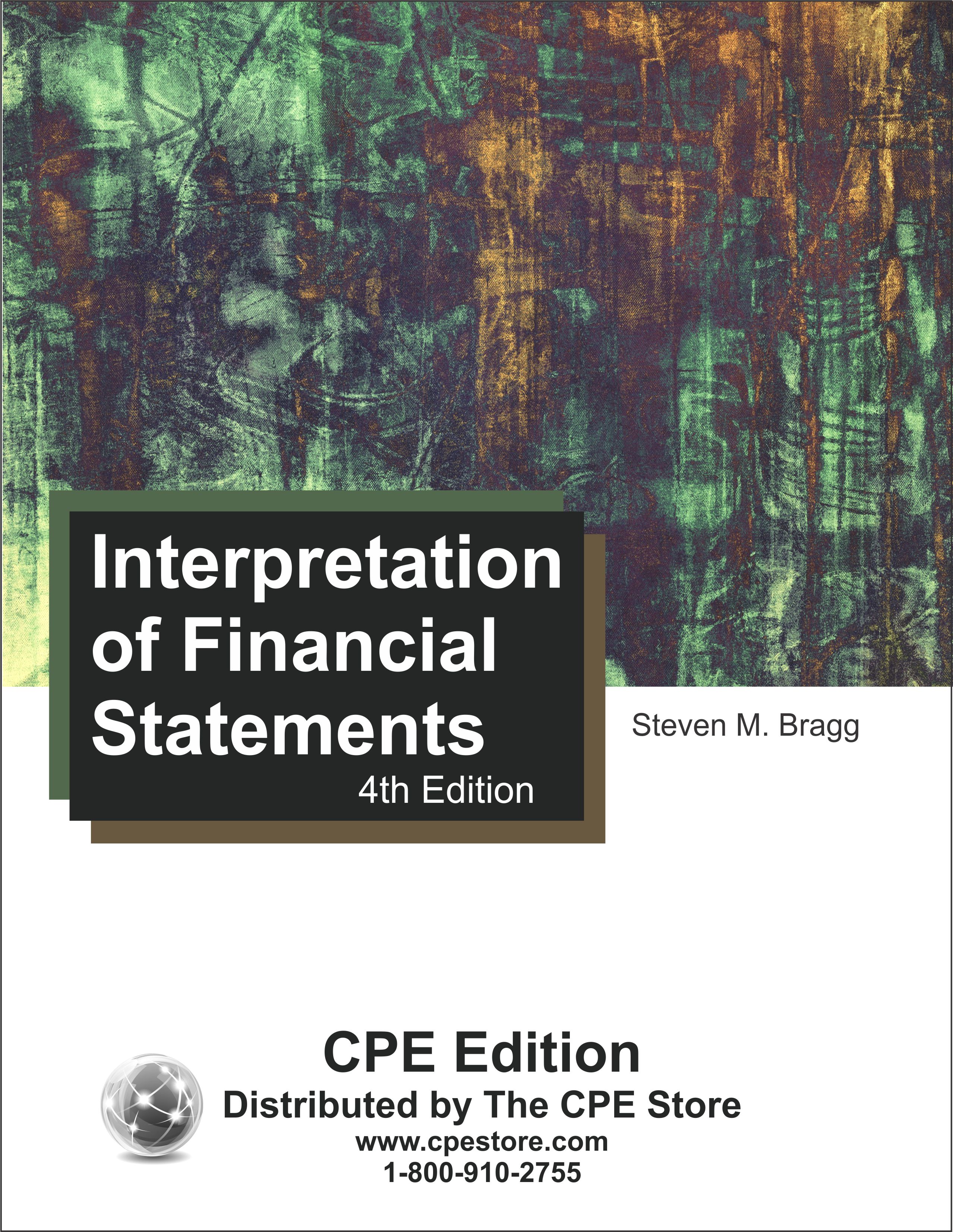
Course number: B473504
This course describes the structure of the financial statements, notes a number of tools for extracting information from the statements, and provides a wealth of additional insights into the reasons for the presence of or changes in certain numbers within the statements. Course level: Basic. Prerequisites: None. Course includes integrated text and study guide, final exam and grading service.NASBA field of study: Finance Course credit: 11 hours
Printed Version$89
PDF$89
Colleague Test(s)$35
Contents
Investing in Income Properties

Course number: FP675703
This course will help you understand real estate investment using a straightforward approach and easy-to-understand explanations. The course explains: the Big Six formula; how to find the right property; using your IRA to invest; the benefit of leverage; overcoming fear; real estate vs. stocks; how to convert rentals to condos; financing options, types of income properties, and much more. Course level: Basic. Prerequisites: None. Course includes integrated text and study guide, final exam, and grading service.NASBA field of study: Finance Course credit: 12 hours
PDF$79
Colleague Test(s)$35
Contents
Revenue Management
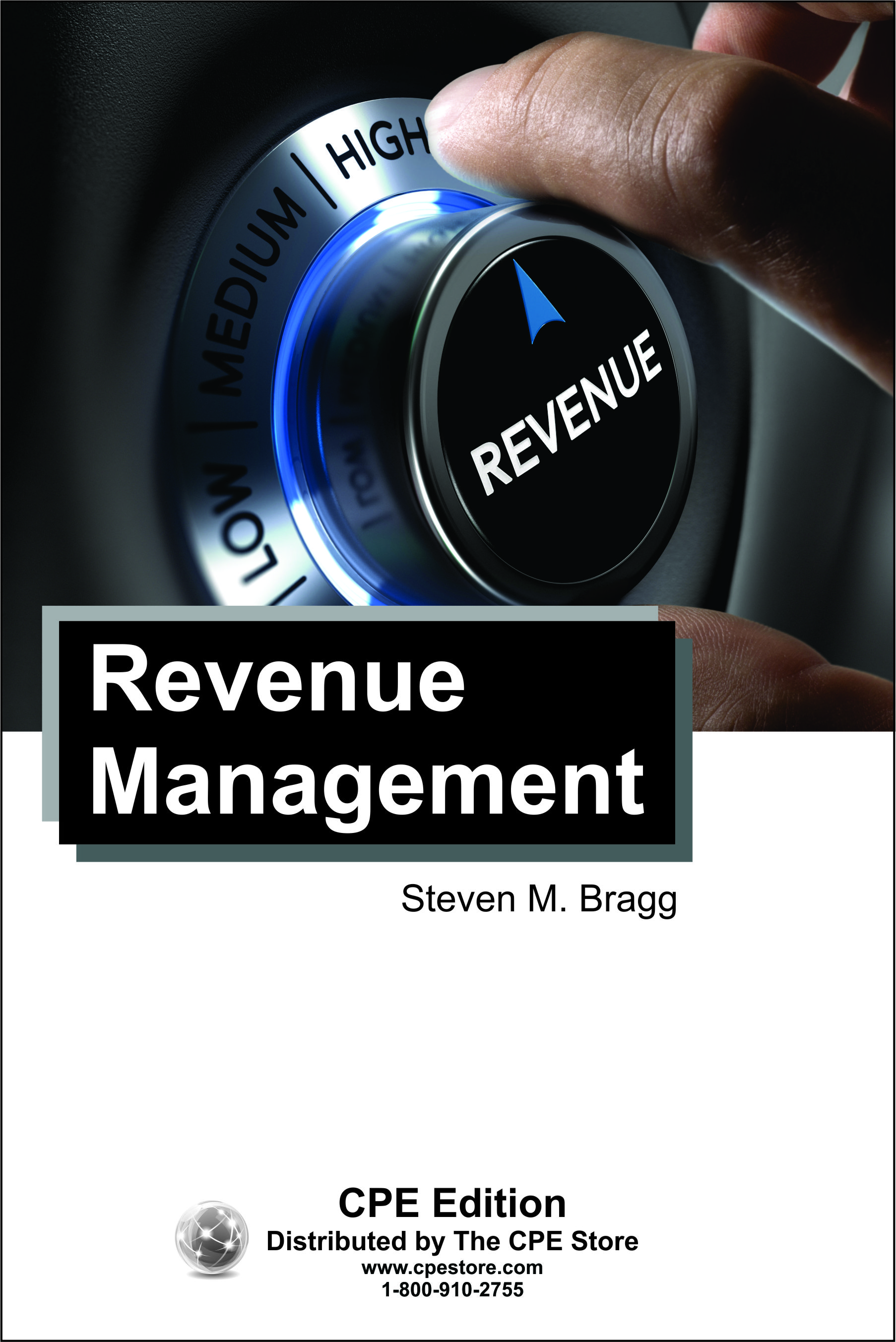
Course number: B403201
This course shows how to increase revenues and profits by adjusting the prices offered to customers. It does so by addressing both the overall pricing strategy of a business and the many day-to-day pricing tactics that can be employed within that overall strategy. Examples of revenue management tactics are bundling and unbundling, dynamic pricing, overbooking, reference pricing, and special financing offers. The course goes on to describe rate fences and other tools to keep discount offers away from full-price customers, as well as revenue management complications and the long-term effects of these activities. In total, the course presents the user with a multitude of options to consider for enhancing the financial performance of a business. Course level: Basic. Prerequisites: None. Course includes integrated text and study guide, final exam, and grading service.NASBA field of study: Finance Course credit: 3 hours
Printed Version$29
PDF$29
Colleague Test(s)$12
Contents
Treasurer's Guidebook
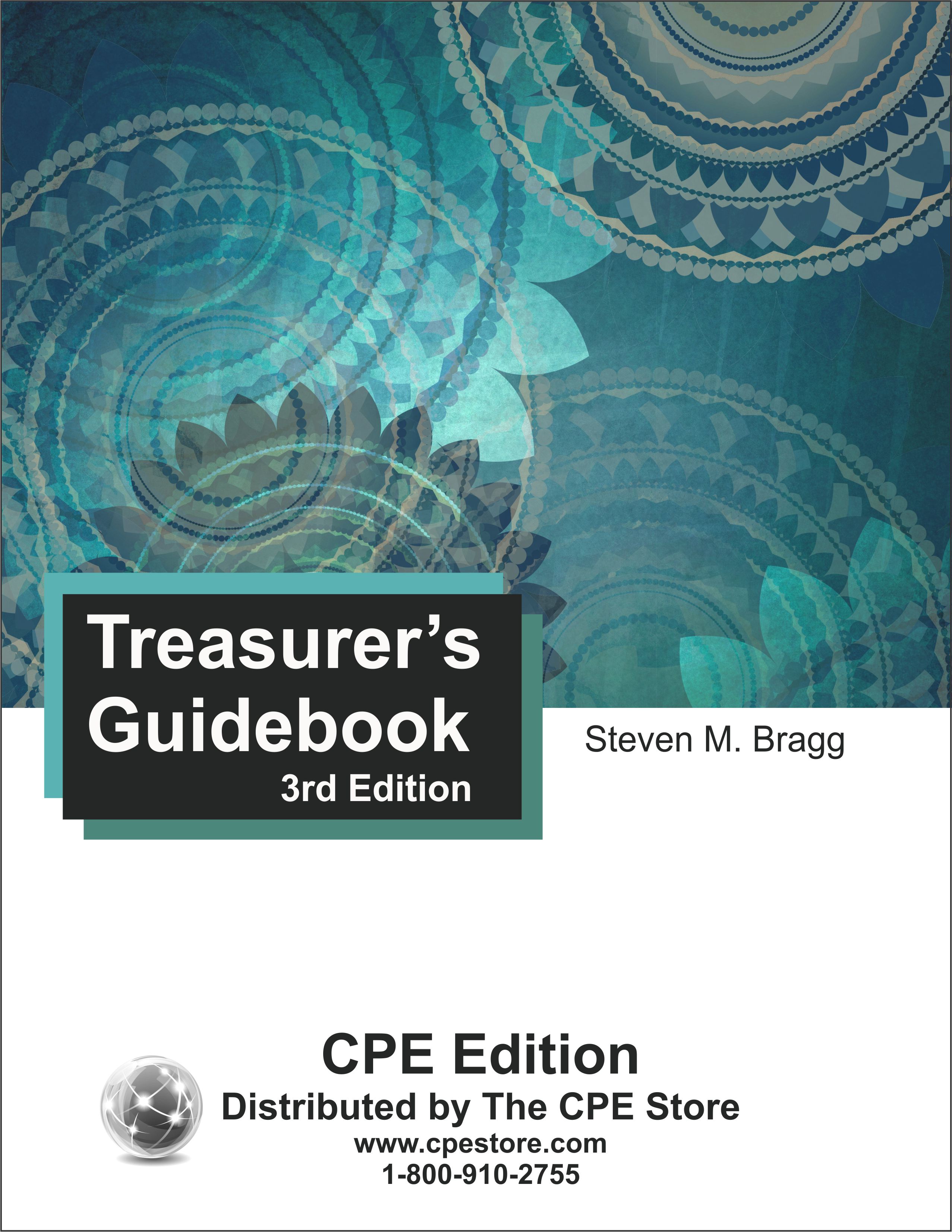
Course number: B459503
This course discusses how the treasury department’s performance can be organized and fine-tuned, focusing on bank relations, cash concentration systems, investment strategies, financing sources, credit management, insurance, and more. The course also addresses the administrative aspects of the treasurer’s job, including the accounting for treasury transactions, treasury management systems, controls, and measurements. Course level: Basic. Prerequisites: None. Course includes integrated text and study guide, final exam and grading service.NASBA field of study: Finance Course credit: 16 hours
PDF$109
Colleague Test(s)$50
Contents
Working Capital Mini-Course

Course number: B459404
Discusses how to reduce the adverse funding effects caused by working capital. The discussion includes a number of specific recommendations on how to manage cash, receivables, inventory, and payables. The course also addresses the operational characteristics that will allow a business to function with zero working capital. The course also examines the characteristics of different types of asset-based lending. Course level: Basic. Prerequisites: None. Course includes integrated text and study guide, final exam and grading service.NASBA field of study: Finance Course credit: 5 hours
Printed Version$39
PDF$39
Colleague Test(s)$15
Contents